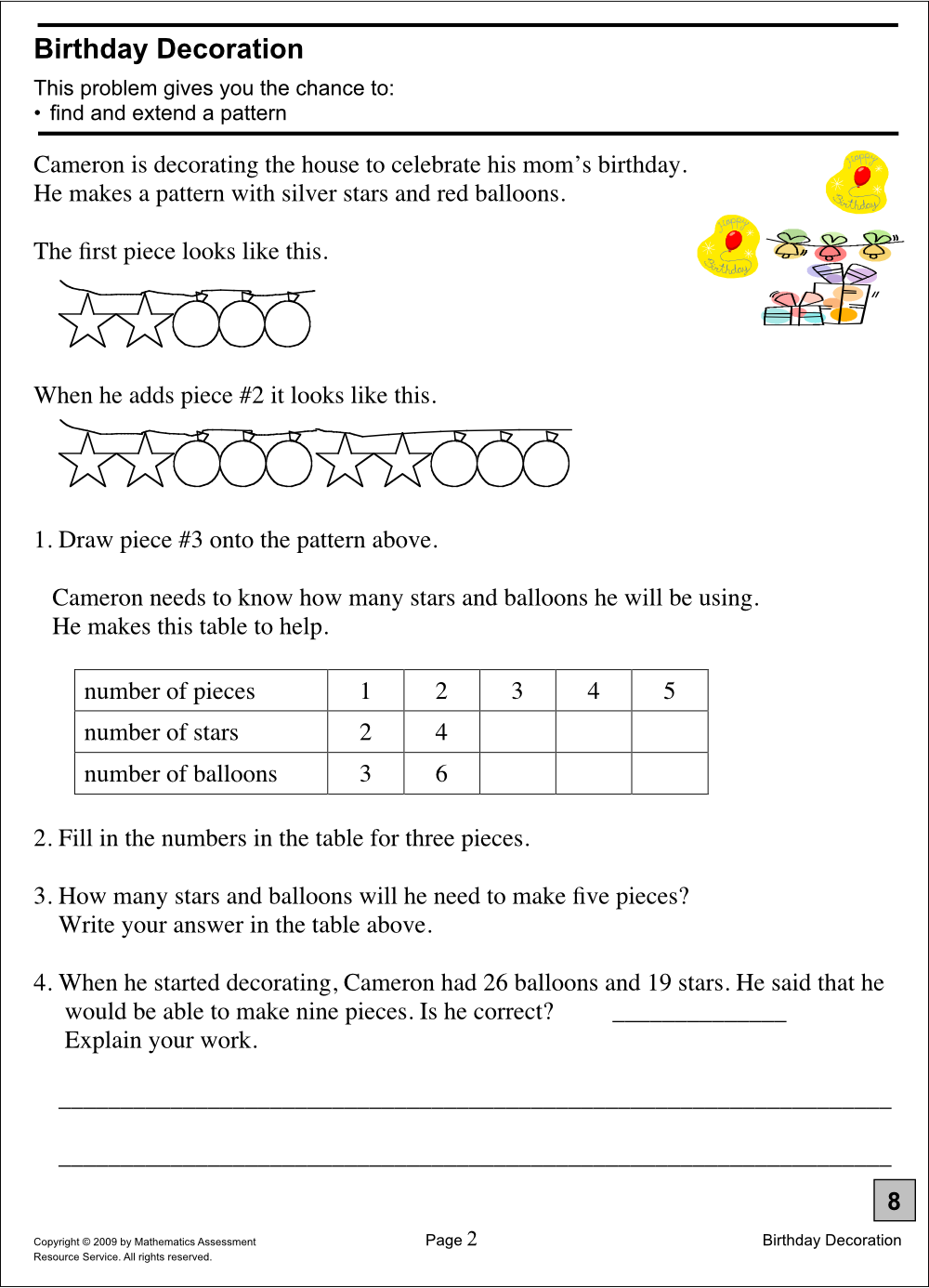30 Design Strategies and Tactics from 40 Years of Investigation
Appendix: Further information and examples
The 'exponential ramp’
There is a tradition that mathematics tests consist of ‘items’, short tasks taking a minute or two, that cover a wide range of ‘facility’ – the proportion of students that can successfully complete the task. The goal is to place students on a spectrum of performance; the effect is that most students fail many of the tasks. In the UK, this effect is mitigated by giving different students different tests with prior matching of each student to an appropriate ‘tier’. Such prior selection is problematic, often influenced by incomplete evidence and social bias; it is unacceptable, for example, in the US. More fundamentally, short items cannot cover the extended reasoning that is at the heart of doing mathematics.
The ‘exponential ramp’ describes an alternative approach based on mathematically rich tasks, presented as a sequence of parts of increasing challenge – normally increasing in the complexity, generality and abstraction of the analysis of the same problem context. Thus all students have access to the same problem, each delivering an analysis at the levels of which they are capable.
These two examples are from the Balanced Assessment in Mathematics (BAM) tests. Note the increasing sophistication required through the task.

Enlarge…
Complete 2009 Grade 3 test
Enlarge…
Complete 2010 Grade 6 test